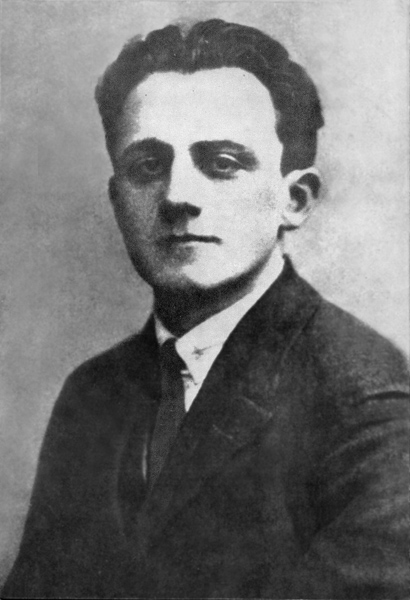The symbol of Jewish resistance to the Holocaust is the Warsaw Ghetto Uprising, which broke out in 1943. However, Polish Jews also resisted by systematically recording the crimes committed by the Germans. Such activity was undertaken by the organisation Oneg Shabbat, which documented them, for example, in the report “Liquidation of Jewish Warsaw”.
Oneg Shabbat was established in 1940, on the initiative of Emanuel Ringelblum – a historian, educator, and social activist. As he was employed in one of the institutions of the Warsaw Ghetto, he was able to focus on additional work. This consisted of conspiratorial work on collecting and compiling occupation material on the Jews. These activities gained a lot of support, thanks to which the historian’s network of collaborators grew.
Before the war, Ringelblum was researching the history of the Jews in Poland. At the outbreak of the Second World War, he was in Geneva for the 21st Zionist Congress, but decided to return to Warsaw, where he took up the task of organising social aid among the Jews. During the German occupation, he was active in underground Jewish organisations (including the Jewish Combat Organisation, the Anti-Fascist Bloc and the Jewish National Committee).
Ringelblum wrote a diary from the beginning of the war and then began to collect more extensive information, materials and documents about the situation of Jews under the German occupation.
The report entitled ‘The Liquidation of Jewish Warsaw’ was the last document produced by Oneg Shabbat, addressed through the Home Army to the Polish Government in Exile and the Allied States. It consisted of 4 parts, talking about the ghetto liquidation action, the operation of the extermination camp at Treblinka, the life of the population in the so-called residual ghetto and the German extermination action in smaller towns and in the countryside.
The report contained witness testimonies supported by statistical data, but also ordinances of the German authorities and plans for the Warsaw Ghetto, as well as sociological analyses of German actions and Jewish reactions. Work on the report was completed on 15 November 1942. The document culminates in an appeal to the addressees, asking them to investigate the crimes committed and punish the perpetrators.
The Oneg Shabbat reports were transmitted by the Polish Underground State. They influenced the condemnation by the coalition countries of the genocidal policy of the Third Reich towards the Jews.





